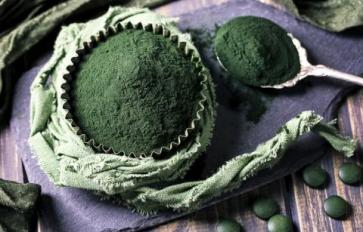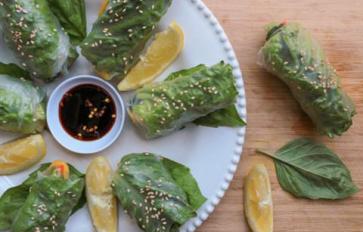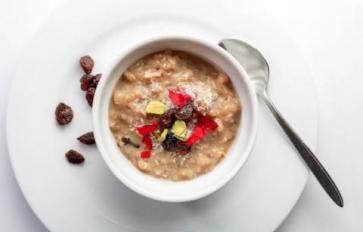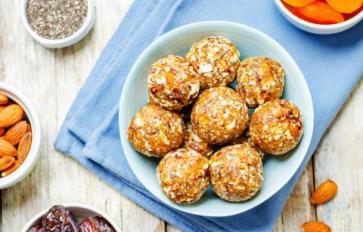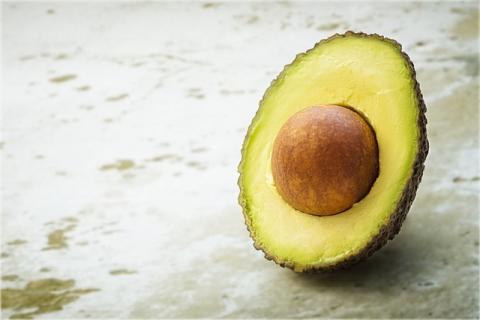
You know a health-food craze when you start seeing avocado toast on your local brewery’s menu offerings. Avocado is one of those superfoods, along with chia and coconut, that have come intro widespread prominence in everything from pantries to pubs.
Their popularity is for good reason: they’re all high in fiber, vitamins, protein and healthy fats, along with a host of other reported benefits. As easy as it is to add these foods into every snack or meal, is there such a thing as too much?
There’s no one-size-fits-all approach to a balanced diet. Part of the equation depends on who’s consuming it, what the goal is and how much and in what form it’s being consumed.
Here are three superfoods to watch the serving size:
Avocados – They’re loaded with good things: fiber, vitamins, and healthy fats. One cup of avocado contains 240 calories, 21 grams of fat, 10 grams of fiber and about 3 grams of protein. It’s also got around 700 mg of potassium and is high in Vitamin B-6 and Vitamin C. An average California Hass avocado is between 165 and 170 grams, or just over one cup, meaning you might be getting over 250 calories at once.
While a large portion of avocado’s fat is monounsaturated, a surprisingly low percentage is omega-3 or omega-6. There’s been debate as to whether we need animal fats for heart health. Not all fats are created equal, and many nutritionists and doctors have argued that some omega-3 rich animal sources have a place in an ideal diet.
Some evidence finds that avocados contain nutrients that assist in the absorption and conversion of carotenoids. But just like anything else, it’s easy to overdo it, especially when it’s such a delicious and versatile food.
If you’re subbing avocado in for bleu cheese on your salad or bacon on your hamburger, it’s probably a much healthier choice. But if you’re adding in avocado on top of your normal fat consumption, it’s easy to gain weight. Some in the nutrition community warn about eating too much of the calorie-rich fruit.
The benefits are seemingly endless to this delicious green superfood – just make sure it’s not supersized.
Chia Seeds – They’re high in fiber, protein and omega-3 fatty acids. One ounce of chia seeds (roughly two tablespoons) provides 11 grams of fiber, about 9 grams of fat and 7 grams of protein. They’re also rich in potassium, magnesium and calcium.
Chia seeds absorb up to 27 times their weight in water and form a gelatinous coating when submerged in liquid. It makes the seeds perfect for puddings, but they can pose a risk due to this very ability.
The seed may also offer more benefits depending on its form. One study found that whole seeds may be less beneficial than ground chia – worth consideration for those who are looking for ways to incorporate the superfood into their diets beyond puddings.
There may be some evidence to suggest chia can negatively affect triglyceride levels as well. WebMD points to research that suggests chia’s high alpha-linolenic acid content might contribute to the risk of prostate cancer, and cautions against consuming too much chia for those at risk. Chia has also been suggested to interact with certain blood thinners and diabetes medications. The website suggests sticking to a variety of chia seed called Salba for those who need to avoid increasing triglycerides.
Coconut Oil – Coconut lovers are well aware that it comes in an abundance of forms: cream, milk, oil, flesh, water and flour. These mean almost limitless ways to integrate the food into your diet, and all the more reason to look into the benefits further.
The oil is great for cooking and baking, as it is solid at room temperature and works well as a replacement for olive oil or butter in most recipes. Coconut oil has been suggested as a treatment for an array of skin ailments, from acne to eczema, but it has its drawbacks.
While the raw fruit is rich in vitamins, protein, fat, fiber and sugar, separating the oil from the fruit takes away most of these nutrients. One tablespoon of coconut oil contains about 120 calories, with 14 grams of fat, 12 of which are saturated. The oil offers little else apart from fat, a reminder that in general, sticking to whole, unprocessed foods can offer the best bang for your buck.
Though coconut oil has been touted for a perfect profile when it comes to its fat breakdown, the health benefits have been controversial.
A Harvard School of Public Health publication asked Dr. Walter C. Willet about coconut oil. Coconut is about 90 percent saturated fat, he says, which can indicate bad news for LDL, the “bad” cholesterol. However, about half of that saturated fat is called lauric acid, which has been associated with HDL, or “good” cholesterol.
Coconut oil is particularly high in medium-chain fatty acids compared with other oils, which means your body metabolizes it differently. However, it isn’t necessarily more or less heart-healthy than other omega-loaded oils. Willet cautions against completely replacing coconut oil for your fatty acid-rich sources like olive oil, nuts and animal fats.
There’s a reason they’re called “superfoods,” and they have a lot to offer, especially if you’re using them as replacements for destabilizing holiday fare and foods loaded with toxins. But everything in moderation may be the best motto. Before packing too much of these superfoods into your diet, it’s worth asking a professional.





